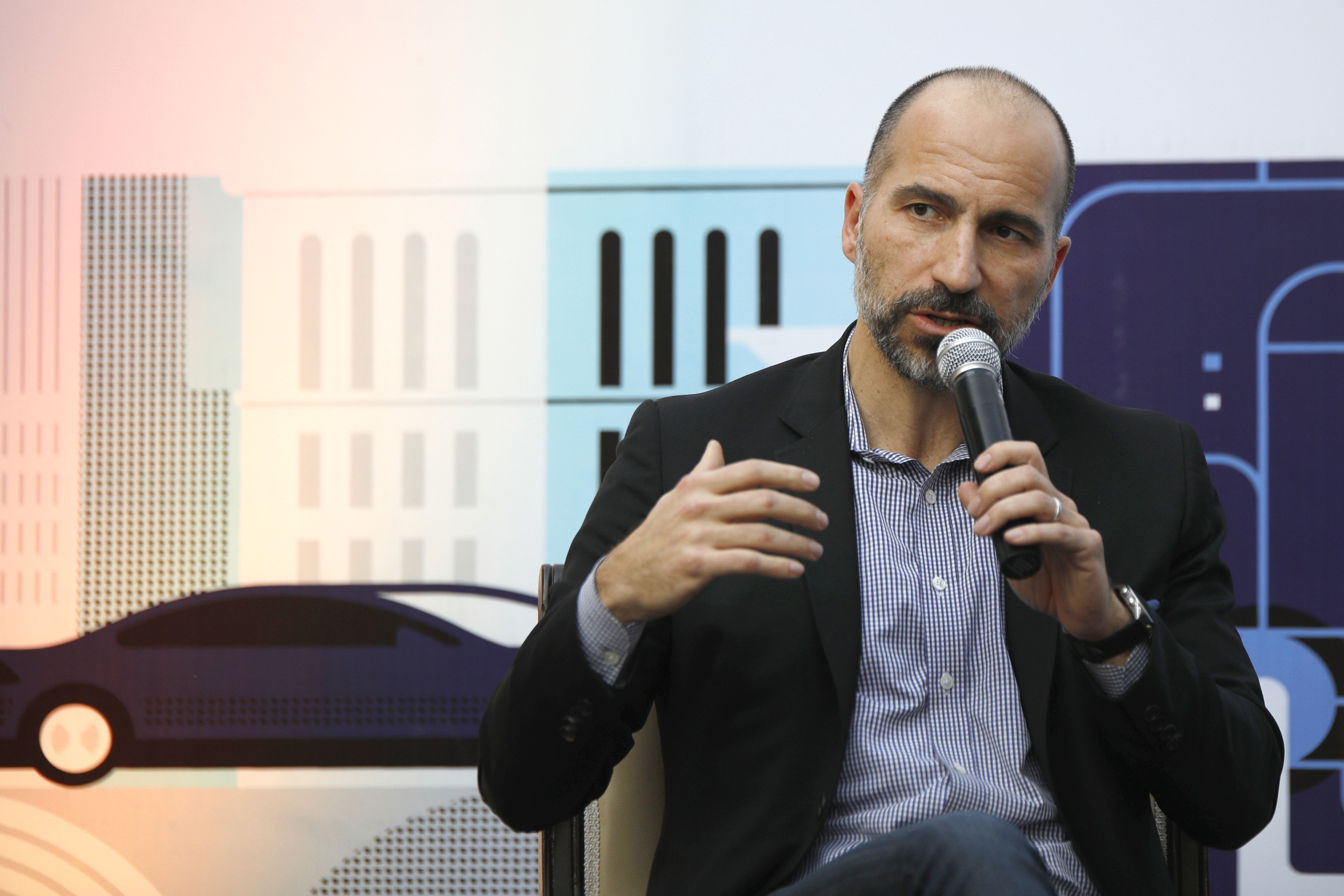The Station is a weekly newsletter dedicated to all things transportation. Sign up here — just click The Station — to receive it every Saturday in your inbox.
Hello and welcome back to The Station, a newsletter dedicated to all the present and future ways people and packages move from Point A to Point B.
It’s that whacky time of year when the heavens open and earnings fall from the sky, giving us precious insight into publicly traded companies. Over at TechCrunch we closely follow startups; we also keep an eye on publicly traded companies — a list that is growing in this summer of the SPAC. My earnings highlight this week is Tesla, an often polarizing company that has had an unprecedented stock run up since March.
I’ve been writing about Tesla for nearly a decade. Its earnings reports, and the reactions to them, are fascinating. The company’s second-quarter earnings report was no different. At first glance, Tesla appears to have won on all fronts, managing to extend its profitability streak to four quarters — its longest period of profitability to date — despite headwinds from the COVID-19 pandemic.
We’re here to provide a complete picture of each company we write about. Here are other details that matter beyond the bottom line.
Tesla revenue was nearly flat compared to last quarter and down 5% from the same period last year. Tesla was able hit its profit mark after slashing operating expenses and taking in $428 million of regulatory credit revenue — (regulatory credits accounted for roughly 400% of 2Q GAAP profit, per Morgan Stanley). Tesla CFO Zachary Kirkhorn said during the earnings call that Tesla expects to double its revenue from regulatory credits in 2020 over last year. He also said he expects regulatory credit sales to decline eventually.
One upside surprise: Tesla generated a positive $418 million of free cash flow in the quarter, which was much better than anticipated.
Finally, watch for capital expenditures and operating costs in the second half of the year. Tesla is going through an unprecedented expansion and says it will have three factories under construction — Berlin, China and Texas — this year. The Texas factory, which will produce the Cybertruck, Tesla Semi and the Model Y and Model 3 for the East Coast, was also announced on the call.
Alrighty, let’s dig in. Vamos!
Reach out and email me anytime at kirsten.korosec@techcrunch.com to share thoughts, criticisms, offer up opinions or tips. You can also send a direct message to me at Twitter — @kirstenkorosec.
Micromobbin’

Micromobility companies Dott, Lime and Tier Mobility scored a huge win this week and secured permits to operate in Paris, one of a handful of cities in the world that have become key battlegrounds over market share in the shared scooter and bike industry.
About 16 companies were vying for a spot. Bird is perhaps the most visible loser in this gambit. Just a year ago, the U.S. scooter pioneer made a big bet on the French market and announced plans to open its biggest European office in Paris. Bird said at the time that it wanted to hire 1,000 people by mid-2021.
Other companies that applied for the permit included Bolt, Comodule, Spin, Voi and Wind.
Paris is viewed as one of a handful of prime marketplaces to deploy scooters. How important is Paris? William Henderson, CEO of Ride Report, put it to me this way in a recent interview.
“A handful of small handful of companies will go out of business as a result of not getting that one permit — that’s how big a deal it is, just that one market.”
In other micromobbin’ news this week ….
Bicycles have become a tool used by protestors and police.
Cowboy has raised a $26 million (€23 million) in a Series B funding round from Exor Seeds, HCVC, Isomer Capital, Future Positive Capital and Index Ventures. The startup has been manufacturing premium electric bikes and selling them directly to consumers around Europe.
Google Maps has rolled out some new features for bicyclists as demand for safe routes has skyrocketed. Since February, requests for cycling directions in Google Maps have jumped by 69%, according to Google. The app now has end-to-end directions that include docked bike share information. For some cities, Maps will show users links to open the relevant bike share app to book and unlock the bike. The blog post is worth a read, if only to understand how Google Maps determines the best route.
SoundCloud founders Eric Quidenus-Wahlforss and Alexander Ljung, together with the co-founder of Jimdo, Christian Springub have launched a new subscription e-bike service called Dance. The invite-only program kicks-off first in Berlin, with an all-inclusive service package of a €59-a-month “introductory price” and its own design of e-bike. The founders’ goal is to emphasize the community aspects of the rental service, just as they did with SoundCloud.
Deal of the week

A PSA about deals. This is going to sound like an obvious message, but alas, conversations with folks at several transportation startups in the past two months have prompted me to spell it out here. The details, or terms, of deals and partnerships matter. I try to provide the most complete reporting possible when I cover partnership announcements, despite efforts by companies to keep terms secret or to paint a rosier-than-reality picture of the deal. “Try” is the important word. I’m not always successful.
Take the TuSimple – Navistar deal announced last week. The two companies said they would develop and begin producing autonomous semi trucks by 2024. It also involved Navistar taking an undisclosed stake in the startup.
This appeared to be a critical win for TuSimple, the autonomous trucking startup with operations in China and the U.S. The timing of the announcement was also important; I learned and reported last month that TuSimple was starting to shop around for at least $250 million in new funding.
However, what wasn’t clear until The Information’s reporters talked to folks familiar with the deal, is that TuSimple is expected to pay Navistar “tens of millions of dollars per year for at least several years to develop and gain access to Navistar trucks.” TuSimple also “gave” Navistar an equity stake.
The partnership may very well end up being fruitful for both companies. That doesn’t change the facts that this deal has an unusual structure and illustrates the challenges that TuSimple as well as other self-driving trucking startups face as they try to form partnerships with legacy manufacturers.
Other deals that got our attention this week …
Claims Genius, a company that provides instant vehicle damage assessment using computer vision and artificial intelligence technology, raised $5.5 million in a Series A funding round that included investments from Malaysia-based Financial Link and SIRI Info Solutions.
Dexerity emerged from stealth with $56.2 million in funding raised to date, from a long list of backers, including Kleiner Perkins, Lightspeed Venture Partners, Obvious Ventures, Pacific West Bank, B37 Ventures, Presidio (Sumitomo) Ventures, Blackhorn Ventures, Liquid 2 Ventures and Stanford StartX. Dexerity has built a full-stack solution aimed at creating collaborative robotics systems. (Yes, this isn’t exactly mobility, but there is a crossover to robotics) The hardware-software system is designed for a variety of different tasks, including bin picking and box packing, targeted at warehouse fulfillment and logistics needs.
Gett, the ride-hailing company based in Israel and London, raised $100 million to fund its B2B business, which CEO and founder Dave Waiser says is growing — not shrinking or staying flat — in the midst of the global health pandemic. The company has raised, to date, $750 million, with investors including VW, Access and its founder Len Blavatnik, Kreos, MCI and more, and its last valuation was $1.5 billion, pegged to a $200 million fundraise in May 2019.
Hertz Global Holdings Inc. reached an agreement that will cut the debt it owes lenders who financed its rental car fleet to less than $5 billion from $11 billion by Dec. 31. As part of the deal, Hertz has agreed to sell 182,000 cars over the next few months. Hertz also has to make $650 million in lease payments.
Sea Machines Robotics, an autonomous ship navigation startup, raised $15 million in Series B funding round led by Accomplice. Brunswick, Eniac VC, Geekdom Fund, LaunchCapital, NextGen Venture Partners, and Toyota AI Ventures also joined the round.
SmartHop, a Florida-based startup that developed software to small trucking companies manage their business, raised $4.5 million in a seed round led by Equal Ventures. Additional investors in the round include Greycroft, Las Olas VC.
Swoop, a Los Angeles-based SaaS startup that has built a booking and management platform for local transportation companies has raised $3.2 million in a seed funding round led by Signia Venture Partners, South Park Commons and several angel investors, including former Uber CPO Manik Gupta; Kevin Weil, co-creator of Libra at Facebook; Kim Fennel, a former Uber executive; and Elizabeth Weil, former partner at Andreessen Horowitz and 137 Ventures.
Sibros, a connected vehicle platform company, raised $12 million in Series A funding, bringing its total capital raised to more than $15 million. The round was led by Nexus Venture Partners with participation from Moneta Ventures and Twin Ventures. Sibros has developed a platform that connects and manages all vehicle software inventory and configurations as well as collects data from every sensor and component. The upshot? The platform is designed so automakers can provide in-vehicle firmware updates as well as advanced analytics.
XPeng, the electric vehicle startup run by former Alibaba executive He Xiaopeng, raised around $500 million in a Series C+ round to further develop models tailored to China’s tech-savvy middle-class consumers. Investors in Xpeng’s latest round include Hong Kong-based private equity firm Aspex Management, American tech hedge fund Coatue Management, China’s top private equity fund Hillhouse Capital and Sequoia Capital China. Existing big-name backers include Foxconn, Xiaomi, GGV Capital, Morningside Venture Capital, IDG Capital and Primavera Capital.
Notable reads and other tidbits

Here’s an additional roundup of transportation news that got my attention.
Autonomous vehicles
Amazon is taking its autonomous delivery robot Scout on the road. Scout will expand operations to two cities in the American Southeast: Atlanta, Georgia and Franklin, Tennessee.
Aurora, the autonomous vehicle technology startup backed by Amazon, is expanding into Texas as it aims to accelerate the development of self-driving trucks. The company plans to test commercial routes in the Dallas-Fort Worth Area with a mix of Fiat Chrysler Pacifica minivans and Class 8 trucks. A small fleet of Pacificas will arrive first. The trucks will be on the road in Texas by the end of the year, Aurora said.
Kiwibot, the delivery robot startup that got its start shuttling burritos and snacks to students on the University of California-Berkeley campus, is expanding to San Jose with a new business model and partners Shopify and Ordermark.
Waymo and Fiat Chrysler Automobiles struck a deal to develop and test autonomous cargo vans and other light commercial vehicles designed to shuttle goods. The agreement is an expansion of a partnership that kicked off four years ago with a focus on self-driving Pacifica hybrid minivans meant to transport people.
A few items are worth noting here (bear with me). The initial plan is to integrate Waymo’s self-driving stack — the suite of software and hardware that allows the vehicle to operate without a human behind the wheel — into FCA’s Ram ProMaster vans. These self-driving cargo vans will be used by Waymo Via, the company’s trucking and local delivery service.
It appears that the terms of the deal could extend far beyond Waymo Via. It’s possible that FCA could supply other transport companies with the self-driving vans (equipped with Waymo tech) through a licensing deal. It’s also important to note that the partnership covers FCA’s entire portfolio of vehicles. And folks familiar with the deal tell me it also extends to future affiliates. This point matters because FCA and French automaker Groupe PSA are in the process of merging into a newly formed corporation called Stellantis. If the 50-50 merger closes as expected in the first quarter of next year, the agreement would theoretically include all the brands that fall under Stellantis.
Finally, you might recall that FCA announced a partnership with Aurora last year. It turns out that this was a memorandum of understanding to work together, an agreement that has since run its course and ended, a spokesperson said. The two companies are still working on custom-built Pacifica hybrids, which Aurora is using in its testing. They are not developing autonomous commercial vans.

2020 Ram ProMaster
It’s electric

Audi CEO Markus Duesmann conceded that Tesla has a significant technological lead in several areas, including in battery tech. Audi is making efforts to catch up. For instance, the company is researching bi-directional charging that would integrate electric vehicles into the domestic power grid.
Faraday Future’s founder had his personal bankruptcy plan approved. The Verge rooted out the most interesting details that surfaced in court.
Ford took a page out of Tesla’s playbook and unveiled a special edition of its forthcoming four-door electric Mustang. This one-off has seven electric motors producing a total of 1,400 HP, which to put into layman’s terms, is a shit-ton of power.
General Motors is on track to deliver 20 electric vehicles by 2023, the company said in its latest sustainability report. That includes models for nearly all of its brands, including Cadillac, GMC, Chevrolet and Buick. Most of these vehicles will use GM’s new modular EV architecture, called Ultium. Matt Burns provides an overview on 12 upcoming models.
Rivian has started to run a pilot production line at its factory in Normal, Illinois and says it will start deliveries of its all-electric pickup truck and SUV next summer. Rivian said deliveries of its R1T electric pickup truck will begin in June 2021. Deliveries of the R1S electric SUV will start in August 2021.
Tesla filed a lawsuit against electric vehicle automaker Rivian and four former employers, on allegations of poaching talent and stealing trade secrets.
Miscellaneous
Jaguar Land Rover is working with the University of Cambridge to develop a touchless touchscreen for future cars, per Car and Driver.
Turo kicked off a campaign that I can say I would not have predicted last summer. The peer-to-peer car rental startup designed Turo Car Masks — yes, a giant mask for a vehicle — and is working with manufacturers to make them for top hosts as a way to promote travel safety. This image is a preliminary design. Turo tells me that anything it produces will be safe for the road.

Image Credits: Turo
The U.S. Department of Transportation and the NETT Council issued a document that provides a guidance for emerging transportation technology, including hyperloop. Importantly, it establishes hyperloop’s eligibility for federal funding for projects.
“We have determined that these hyperloop projects are just as eligible for grant as any maglev or magnetic levitation project,” said Finch Fulton, Deputy Assistant Secretary for Transportation Policy during the live-streamed event. “This includes the Federal Railroad Administration Consolidated Rail Infrastructure and Safety Improvements (CRISI) Program, the Office of the Secretary BUILD and INFRA grants, and programs of that sort. This also means that they would be eligible for some of the Department’s loan and lending programs.”
Volkswagen wants to turn its cloud-based software and data portal called the Industrial Cloud Network into a broader marketplace for other manufacturing and technology companies. The Industrial Cloud Network, designed by VW and Amazon Web Services (AWS) as well as integration partner Siemens, would operate like an app store. Manufacturing technology and partner companies will be able collaborate on new software applications and eventually connect VW factories around the world to its global suppliers.







